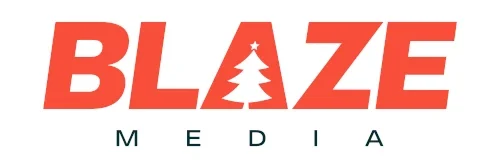If you are in the marketing department of a charity, you have likely been tasked with the job of discovering the best marketing strategies for your charity.
If you have a website, it can be easy to become lost in the void of web pages, and that is the last thing you want, especially when you’re trying to raise awareness for a good cause.
Working with a marketing agency to develop a PPC strategy can help you build an online presence and attract more attention to your charity’s website.
At Blaze, we know PPC, so you’re in the right place.
What is PPC?
PPC stands for pay-per-click, a form of internet marketing where you only pay for your ad if somebody clicks on it. This is brilliant if you’re working with a budget for your marketing campaign.
This marketing technique has been growing over the years, and it’s easy to understand why. Why should you pay for an ad without knowing that it has actually worked?
Before we get into why pay-per-click for charities is a great idea, let’s first look at some of the types of PPC that can be used. Doing this tends to make it a little easier to get your head around, as it can be confusing at first glance.
Popular Types of PPC

Search Ads.
This is probably the most popular type of PPC, allowing businesses to bid on specific keywords from Google. This will enable organisations to show ads in Google’s search results, but you only pay for these ads if your search is clicked on.
Gmail Ads.
This is a fully automated process where Google will give people ads in their Gmail inbox that are relevant to their Google searches.
These ads are based entirely on your search history and what you interact with, so if you have been getting odd ads in your Gmail recently, you may be the cause.
Social Ads.
This is a type of digital marketing that takes place on social media.
Social media platforms such as Facebook or Instagram are great marketing tools that help you reach people organically. This means that only people who fall into your targeted demographic receive your ads on their feeds.
At Blaze, we specialise in social ads, so if you want to learn all about the wonderful world of social ads, contact our team today.
Why Would a Charity Need PPC?

It can always feel strange to apply the same marketing strategies to a charity that you would use for a major corporation, but both need successful marketing.
At the end of the day, the goals of a charity are not too dissimilar to those of a huge corporation.
A charity and a business want people to visit their sites and invest in their products or services, and both want to target a specific demographic; PPC allows them to do that.
Both are ultimately aiming for success, and that won’t happen without a bit of assistance.
With the help of an expert, you can receive substantial results when implementing a PPC campaign.
Now that you have a better understanding of PPC, let’s explore some of its benefits for charities.
Precise Targeting
Let’s be honest; not everybody is going to compare your cause.
As humans, we all lead very different lives, and so we all have different experiences. This means that someone may have charitable causes that really care about and others that simply don’t cross their mind.
You can’t care about everything simultaneously; it would drive you crazy.
So unfortunately, there are people who won’t necessarily care about your charity, but that also means there are people out there who will care about it quite a lot.
It can be pointless advertising to someone who doesn’t care about your cause, as they will just scroll past it.
Think about it, if you sold cheese, you wouldn’t want your ads to be shown to vegans.
With PPC, you can target people genuinely interested in your cause. This will be decided based on their search and the pages they follow.
This means that no advertisements are wasted on people who simply won’t be interested in them.
Increased Visibility
One of the main goals of any charity is bringing awareness to their cause.
Though engaging with people you know will be interested in supporting your charity is essential, it is just as important to advertise your charity to those who could support your cause.
This essentially means that though someone may not have explicitly searched for information about your cause, they have searched for topics that may suggest that the cause may be of interest to them.
The difference between those two groups may seem miniscule, but it matters.
Because PPC ads target the latter group, they spark people’s interest, which increases the likelihood that they will click on your website. This means that your website is receiving visibility from people who may not have previously clicked on your page.
This is also great for the general public, in a way, as it gives them access to an organisation that shares their personal ethos and gives them a channel through which they can get involved in a cause that they care about.
Volunteer Outreach.

Most charities do not set aside much of the overall budget to pay workers, so they depend heavily on volunteers to help them carry out their missions.
The problem is it is tough to find willing volunteers who are happy to work for free.
This is especially true in the current financial climate in Britain. Many people just aren’t willing to commit their time to working for free, and so the only people willing to volunteer are people who really care about the case.
To find people committed enough to work for free beyond your local area, you need to extend your outreach, and PPC ads can help you achieve this.
The cost of an ad seems small in comparison to the potential of gaining a committed volunteer ready to campaign for your charity.
Charity Representation
For some weird reason, people often associate charities with being quite depressing and lifeless.
Sure, sometimes the causes that charities focus on can be a bit bleak, but if everything was going well for the cause, then it wouldn’t need the support of a charity, would it?
Charities around the world are trying to change the scope of how people view charities.
PPC advertising has been vital to rebranding the word ‘charity’ and creating new associations with what charity means.
Using PPC for your charity gives you an opportunity to take control of the charity’s representation. If you want to inject fun into the charity, a successful PPC campaign can easily do that.
Remember, with ads, you can challenge and change perspectives.
Get Measurable Results

Many outreach methods used by charities can sometimes make it difficult to get measurable results on how these campaigns are doing.
For example, you can’t exactly measure the success of a campaign when you hand out flyers, as you have no idea what people do with them once they are out of your line of view.
This is the same for many common charity marketing strategies, so it can be hard to collect data. Without data, it is impossible to measure the success of your ad campaign.
With PPC, there is no need for guessing games. Some of the data you can get from a PPC campaign includes:
- Impressions- How many people can see your ads?
- Clicks- How many people click your ads?
- Conversions– If anyone donated/bought something.
- Geolocation- Where your ads are being seen.
- ROI- Evaluate how well your investment is doing.
- Total ad spend.
As you can see, you can get a lot of really valuable data from a PPC ad and with that data, you can make changes to your own strategy to ensure that your organisation is investing their budget wisely.
Budget Reservation

With any charity, though marketing is a big priority, the assigned budget for marketing is never substantial.
Charities are non-profit organisations, and so they have to make what money they have stretch.
The best part about PPC ads is that you only spend money when people actually click on the ad, and when they do, there is a chance that they may pledge money to the organisation.
With general advertisements, you may be able to reach a wide audience, but there is no guarantee that this audience will click on the ads, and you still have to pay as if they did.
Through PPC, you only pay for what you actually benefit from, so you won’t spend as much as you would with a typical advertising campaign.
Depending on the size of your budget, this may mean that you have money to invest in other aspects of your business, such as employing more workers or hosting more events.
Google Ads Grant
Luckily for charities, Google offers a lifeline in terms of ads with the Google Ads grant.
The grant offers eligible charities up to $10,000(just under £7,000) to invest in Google ads every month, and this has changed the marketing game for charities.
Unfortunately, you must go through an extensive application process before you can receive the grant.
This is an understandable part of the process, as they can’t hand out that amount of money to everyone.
This process investigates whether the charity is eligible for the grant or is truly in need.
The application process can be complicated as it requires a lot of information, so if you need expert advice, contact our PPC team, and they can walk you through the process.

Getting PPC For Your Charity
Now that you have considered all the benefits of using PPC ads for charities, you are likely strongly considering implementing PPC into your upcoming ad campaigns.
Due to it’s controllable costs, high potential reach and comprehensive insight, you would be missing a huge opportunity to successfully market your charity if you were not to start a PPC campaign.
By starting a PPC campaign, you could elevate the success of your charity and give your cause the necessary support and funding it needs.
Get in touch today to learn more about PPC from our expert team.


